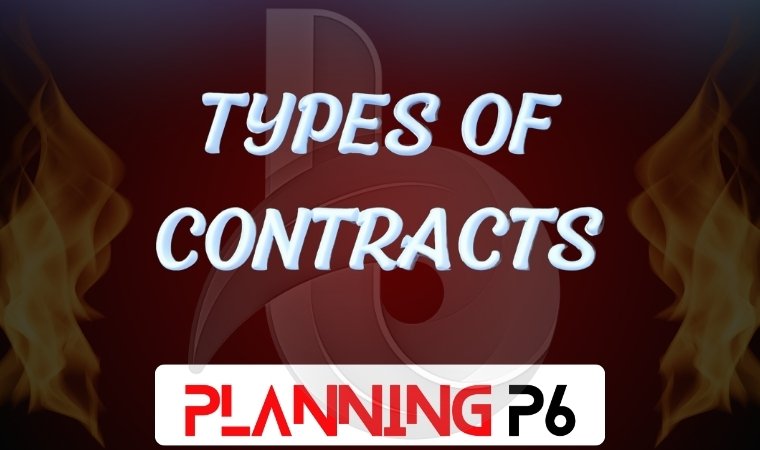
COMMON TYPES OF CONTRACTS
Here are some of the most common types of construction contracts used in various industries.
🔴Fixed-Price Contracts:
✅Lump Sum Contracts: The contractor agrees to a fixed price for the entire project, regardless of unforeseen costs.
✅Unit Price Contracts: The contractor is paid a predetermined price per unit of work completed.
🔴Cost-Reimbursable Contracts:
✅Cost-Plus-Fee: The owner reimburses the contractor for all costs incurred plus a fixed fee or percentage.
✅Cost-Plus-Percentage-Fee: The contractor receives a percentage of the total project cost as a fee.
✅Cost-Plus-Fixed-Fee: The contractor receives a fixed fee, regardless of the actual project cost.
🔴Hybrid Contracts:
✅Guaranteed Maximum Price (GMP): The contractor agrees to a maximum price, but the owner reimburses actual costs up to that limit.
✅Incentive Contracts: These contracts offer incentives for early completion, cost savings, or quality performance.
✅Design-Build Contracts: The contractor is responsible for both design and construction, streamlining the process.
✅Engineering, Procurement, and Construction (EPC) Contracts: The contractor is responsible for engineering, procurement, and construction activities.
✅Turnkey Contracts: The contractor is responsible for everything from design and construction to commissioning and handover.
🔴Choosing The Right Contract Type Depends on Various Factors, Including:
✅Project Complexity: Complex projects may require more flexibility, favoring cost-reimbursable contracts.
✅Risk Tolerance: Risk-averse owners may prefer fixed-price contracts, while risk-tolerant owners may opt for cost-reimbursable contracts.
✅Owner’s Expertise: Owners with limited construction expertise may benefit from design-build or turnkey contracts.
✅Market Conditions: Economic conditions and the availability of skilled labor can influence contract choice.
✅Project Schedule: Tight deadlines may favor fixed-price contracts to incentivize timely completion.
TRADITIONAL CONTRACTS
🔴Lump Sum Contract:
✅A fixed price contract where the contractor agrees to complete the project for a specified sum.
✅Best For: Well-defined projects with minimal changes.
✅Risk: High for the contractor, low for the owner.
🔴Cost-Plus Contract:
✅The owner reimburses the contractor for all costs incurred, plus an agreed-upon fee or percentage.
✅Best For: Complex projects with uncertain scope or frequent changes.
✅Risk: High for the owner, low for the contractor.
🔴Time and Materials Contract:
✅The contractor charges for labor, materials, and overhead at predetermined rates.
✅Best For: Small projects with undefined scopes or emergency repairs.
✅Risk: Moderate for both parties.
🔴Unit Price Contract:
✅The contractor is paid a fixed price per unit of work completed.
✅Best For: Large-scale projects with well-defined quantities and unit prices.
✅Risk: Moderate for both parties.
INTEGRATED PROJECT DELIVERY (IPD) CONTRACTS
🔴Design-Build Contract:
✅A single entity is responsible for both design and construction.
✅Best For: Complex projects that require coordinated efforts.
✅Risk: Shared between the owner and the design-builder.
🔴Joint Venture:
✅A partnership between two or more entities to execute a project.
✅Best For: Large, complex projects that require specialized expertise and shared risk.
✅Risk: Shared between the joint venture partners.
🔴Construction Management Contract:
✅A construction manager oversees the project, but doesn’t take on construction risk.
✅Best For: Large, complex projects where specialized expertise is required.
✅Risk: Low for the owner, moderate for the construction manager.
The choice of contract type depends on various factors, including project complexity, risk tolerance, desired level of control, and the expertise of the parties involved. Careful consideration of these factors is crucial to selecting the most suitable contract for a specific project.
DISCUSSION FORUM TOPIC

PLANNING P6 TUTORIALS
How To Manage Contractors with Activity Codes in Primavera P6 and Track Contractor with Activity Codes
Complete Tutorial What Is Resource Loading in P6, How to Calculate Resources and Productivity Rates





